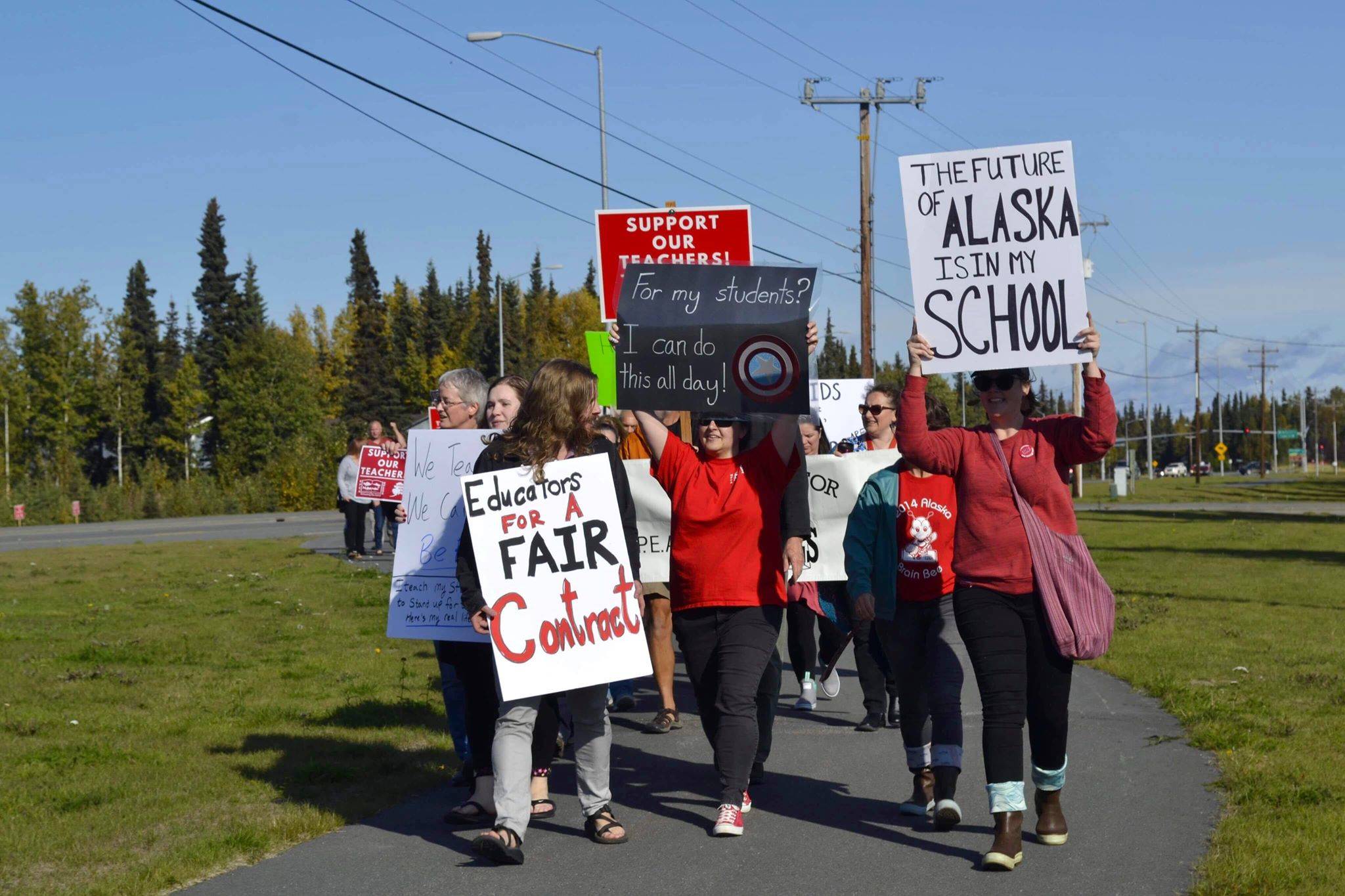This year was a busy year for students, educators and the school district alike. The year began with many budget uncertainties that led the district to consolidate Soldotna High and Soldotna Prep School. The state’s university system, and local colleges on the peninsula, also faced devastating cuts from the state.
Superintendent Sean Dusek retired at the end of the 2019-2019 school year, and the district’s John O’Brien took his place. At the end of the school year in May, the district saw the highest teacher and staff retirements in memory.
The Kenai Peninsula Borough and the Kenai Peninsula Borough School District worked together to get the $10 million state grant to build a school in Kachemak Selo extended for another two years.
Educators and district employees narrowly evaded a strike, when an employee agreement was reached in September after a year and a half of negotiations.
The eastern peninsula school board seat was left vacant when the candidate-elect was unable to serve on the board. Cooper Landing’s Virginia Morgan was appointed to vacant seat in November.
The year began during the federal government shutdown, which shut down many local offices, like the Kenai National Wildlife Refuge.
The Legislature got off to a rocky start in January, and the Alaska State House wasn’t settled until well after session began.
The Kenai Peninsula Borough Assembly chambers were given an official title in honor of longtime assembly member Betty J. Glick.
The borough set up an Election Stakeholders group to evaluate how the borough could increase voter turnout.
Borough Mayor Charlie Pierce was sued for disrcimination and wrongful termination. The borough settled with the former human resources employee. Borough taxpayers were also on the hook for an $80,000 bill from the American Civil Liberties Union, after the borough lost in a discrimination lawsuit regarding its former invocation policy. The first Satanic invocation since the new invocation policy was put in place caused walkouts and a protest outside the borough building.
After Gov. Mike Dunleavy releases his first proposed budget, the borough sees huge potential cuts from the state. Alaska’s House Finance Committee visited the Kenai Peninsula to hear budget concerns from constituents, which was overwhelmingly opposed to the governor’s deep cuts. Dunleavy also visited the Kenai Peninsula as the first stop along his “roadshow” with Americans for Prosperity.
Soldotna’s efforts to build a field house was squashed by voters. Soldotna’s Mayor Nels Anderson died in September, and spurred a special election to find a new mayor who will serve until October 2020. Pete Sprague, former mayor of Soldotna, shows a lead in unofficial election results from Dec. 17. In September, Soldotna narrows the area it wants to annex and votes to send petition to state Local Boundary Commission.
A controversial gravel pit in Anchor Point was approved.
The assembly looked at ways of creating additional revenues, including raising the sales tax cap from $500 to $1,000 and establishing a “bed tax” on hotels and lodges. Mayor Pierce vetoed the bed tax before it could get to the voters and the residents of the borough failed to raise the sales tax cap at the municipal election in October.
A heated Nikiski assembly seat race sees a state investigation into candidate John Quick and orders him to “cease and desist” communications with Alaska Yes Inc, a nonprofit organization pushing for Quick’s campaign, and bashing his competitors’.
Residents, lawmakers and borough and city officials grew concerned after state Department of Transportation closes Silvertip Maintenance Station near Hope, changing winter maintenance responsibilities in Turnagain Pass area.
The borough and several local cities join a statewide online sales tax initiative that seeks to collect local sales taxes from online retailers.

